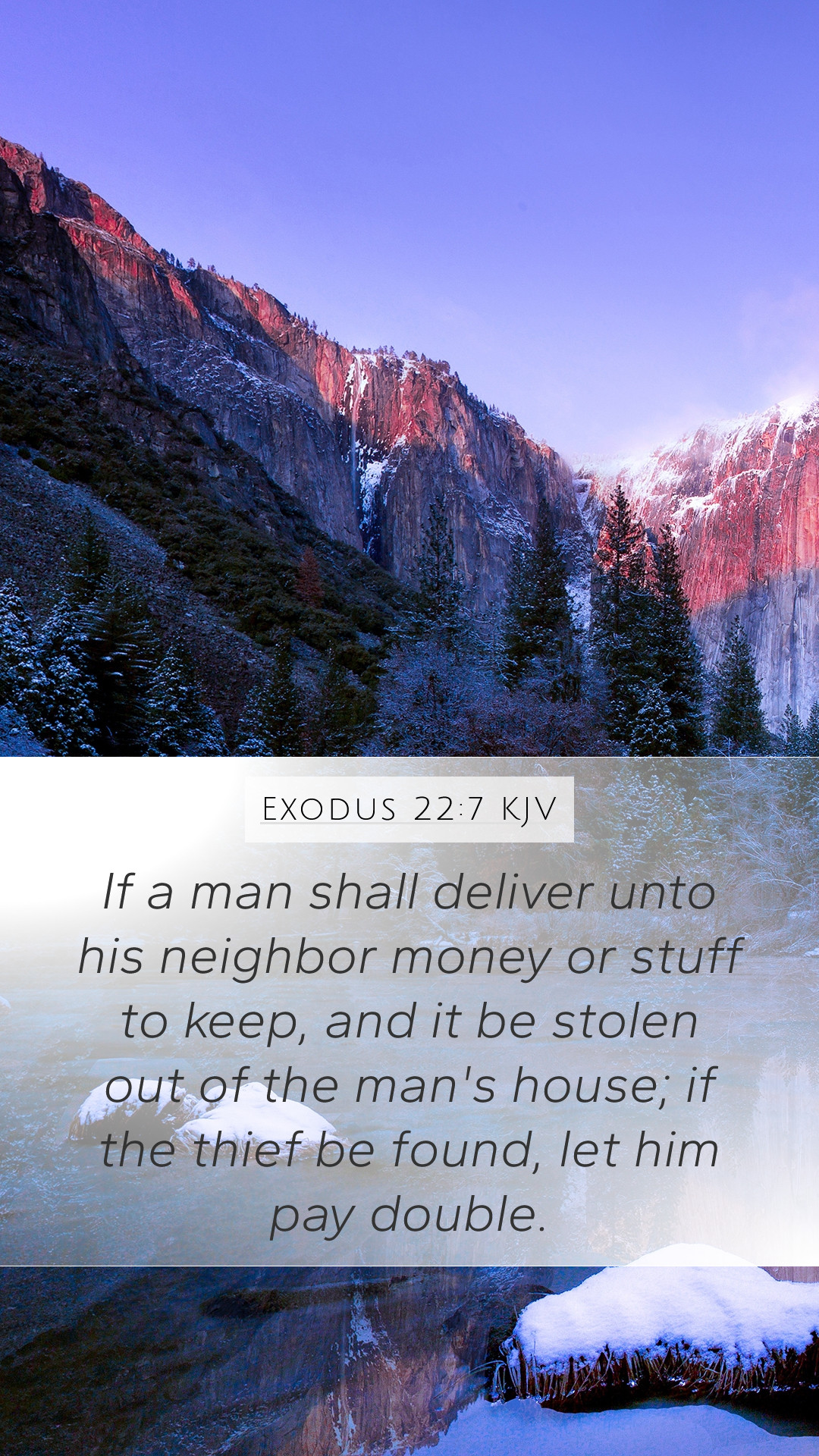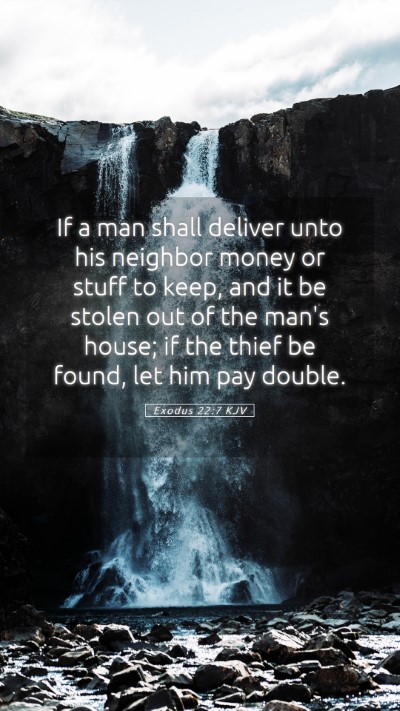Understanding Exodus 22:7
Exodus 22:7 falls within the laws addressed by God to the Israelites, focusing on the responsibilities and ethics regarding personal property. This verse specifically deals with the issue of trust, accountability, and the moral obligation regarding loans and possessions.
Verse Text
The verse states:
"If a man shall deliver unto his neighbor money or stuff to keep, and it be stolen out of the man’s house; if the thief be found, let him pay double." (Exodus 22:7, KJV)
Verse Meaning and Analysis
This verse can be understood through various perspectives provided by notable public domain commentaries:
-
Matthew Henry's Commentary:
Henry emphasizes the principle of justice that underlies this law. It illustrates the idea that if a person entrusts something valuable to another for safekeeping, the entrusted individual has a responsibility to safeguard that item. Should theft occur, the thief must return double the value. This serves both as a warning against theft and as a principle to foster trust within the community.
-
Albert Barnes' Notes:
Barnes expounds on the context of personal property laws, stating that the law encourages honesty and diligence amongst individuals. It upholds the importance of accountability when one person places their property in the care of another. The provision for the thief to pay double signifies a deterrent against theft and compensation for loss.
-
Adam Clarke's Commentary:
Clarke elaborates on the human tendency towards wrongful acts, highlighting the law’s preventive aspect against theft and dishonesty. He notes that the requirement to pay double enhances the moral responsibility and impacts the community's integrity, thus advocating for fairness in dealings between neighbors.
Key Themes in Exodus 22:7
The following themes arise from the verse, important for anyone studying the Bible:
- Responsibility: The entrusted party is accountable for the care of another's property.
- Justice: The law provides a clear definition of justice regarding theft—ensuring that compensations are made.
- Trust: Interpersonal relationships are fostered through trust and fairness within the community.
Related Bible Cross References
- Proverbs 6:30-31: Discusses the consequences of theft and the need for compensation.
- Luke 19:8: Emphasizes restitution and personal accountability in dealings.
- Deuteronomy 22:1-4: Guidelines on the responsibility for lost property.
Conclusion
The interpretation of Exodus 22:7 allows for a deeper understanding of Biblical justice and the ethical responsibilities inherent in interpersonal relationships. These themes encourage believers to engage in fair practices and uphold trust within their community. Understanding scripture, especially difficult Bible passages like this, helps inform our moral compass and directs us to live in a manner that honors God and supports communal integrity.
Additional Insights for Bible Study
For those interested in conducting Bible study, consider utilizing these insights for group discussions:
- How do modern understandings of property and theft compare to the principles outlined in Exodus 22:7?
- What personal experiences demonstrate the importance of trust and responsibility?
- How can we apply the lessons from this verse in our daily lives, especially in dealings related to money?


